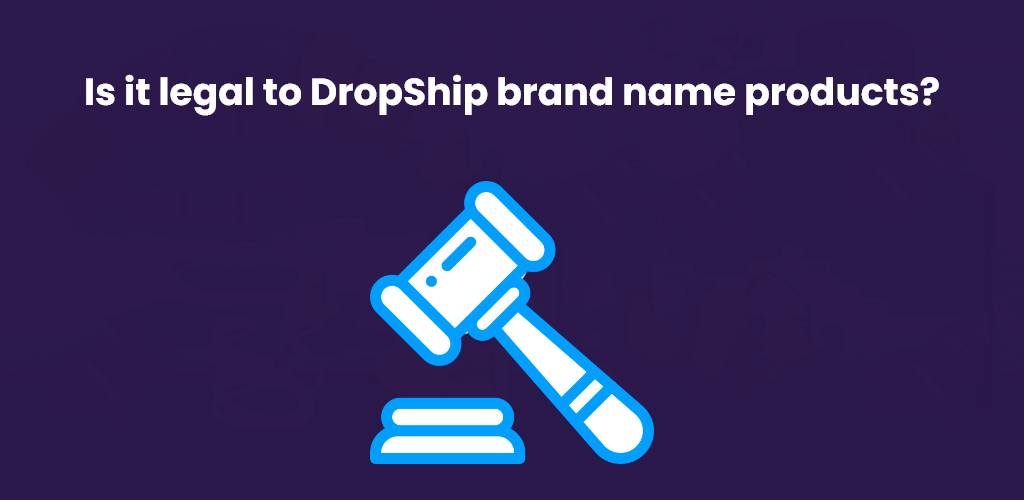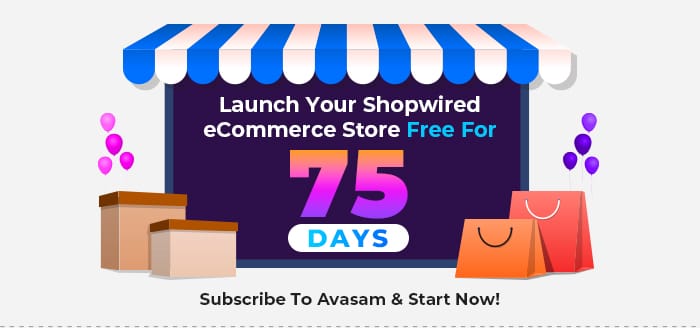Is it legal to DropShip brand name products?
With huge demand for branded items, we have often been asked about DropShipping branded and brand name products, and whether it is legal for sellers to do so. The answer is yes, it is legal – so you’d think that this should be a nice short post – but the reality of DropShipping branded items isn’t as simple as knowing it is technically legal.
Can you do branded DropShipping on marketplaces?
Yes, you can. However, when brand names, trademarks, and intellectual property (IP) are at stake, it isn’t always as simple as you might think it would be, considering that it is technically legal to sell using DropShipping.
If you want to be able to sell branded products by DropShipping, you’ll need to have an agreement in place that you are allowed to sell those items. You’ll also need to be able to prove to the marketplace that the agreement is legitimate – as well as the products being authentic.
Is branded DropShipping better?
It depends on what you mean by ‘better’. Profit margins are potentially higher with big ticket items, but you’re also at greater risk of running into hassle, if you’re DropShipping branded items – especially if you’re not working with verified suppliers. Having your seller account suspended on the marketplace is the biggest one – and if that is Amazon or eBay, and they’re your main sales channel, that’s going to be a major headache.
What happens if sellers don’t have authorisation from brand owners?
Without the right permissions being provided to the marketplace, there is a high chance of the seller having their account suspended – either temporarily, or permanently. Appeals to get seller accounts reinstated can be difficult, and a long, drawn-out process (you only have to search online for ‘seller account suspended’ to get an idea) so you’re going to want to avoid this. At best, you’ll miss out on sales, and at worst, the account may be terminated by the marketplace, and they may retain any funds in your account, leaving you out of pocket. There are solicitors that specialise in marketplace law, and may be able to appeal your case, but they operate at significant cost, and they can’t guarantee that they will be able to get the account reinstated.
As a supplier, if you want your sellers to continue to perform for you, make sure you have provided the correct authorisation – and as much information as they might require.
So while you CAN do DropShipping on marketplaces like Amazon and eBay, the question is, is it worth the hassle, and the potential risk to your seller account?
Why do marketplaces restrict sales of branded goods?
Many marketplaces restrict sales of branded items for several reasons:
Consumer confidenceConsumers shop with marketplaces – especially the big ones, Amazon and eBay – because they are completely confident that if there is an issue with their order, they will get the support they need from the marketplace. That support is a huge benefit, and is why your marketplace sales are likely to be greater than on your website.
This is also the reason that marketplaces take steps to restrict branded items. The second there is any doubt about the authenticity of a product, the trust in the marketplace takes a hit – unless they remove those items from the marketplace.
Reducing counterfeiting activityCounterfeiting will always be an issue – particularly in holiday destinations worldwide. Customers tolerate it there, because they know what they are getting. But when they believe they are buying the real deal, and they have reason to doubt it is when they receive it, they aren’t going to be happy. This occurred in the early 2000s, when customers started to get to grips with eCommerce. Customers know what to look for, they know they can get support from the marketplace, and that they can get their ‘revenge’ by complaining on marketplace listings – which means the seller is likely to end up suspended from the marketplace.
Brand owners are protectedMarketplaces like Amazon and eBay work with brands for their mutual benefit – it means that customers are more confident in using the marketplace, and it means the brand is less likely to see listings for counterfeit items, stolen goods, or unauthorised resellers. Brand exclusivity is an important factor for many brands – because it helps to eliminate product bought on the grey market.
Brand registry arrangements have been available on marketplaces like Amazon for years, but in recent years, brands have been allowed to restrict their products being sold by third party sellers. This means that even if you have permission from a supplier to sell those items, the brand owner may ask Amazon to block you from doing so.
Can I find out which brands are restricted on marketplaces?
Unfortunately, this is a tricky thing to track down. You can find unofficial lists online from third parties, but there’s no guarantee that they will be accurate. So, unless you have express, specific authorisation to sell branded items on a marketplace, it is likely best to err on the side of caution and not sell branded items on those marketplaces.
- The Amazon Brand Name Policy is here and the intellectual property policy here.
- The eBay UK Verified Rights Owner (VeRO) policy is here.
- OnBuy’s position on branded items is in their Terms and Conditions here.
- The Wish Intellectual Property policies are here, and how to provide proof of authorisation here.
Marketplaces tend to make their policies easily accessible, so do your due diligence before you start selling. If you can’t find anything specifically pertaining to brands, it is better to be cautious and not sell branded items on that platform, unless you can get confirmation from their seller support team.
Is it better to sell branded items on my own website?
It is likely you’ll face less issues with branded items on your own website – and that’s more likely to be the case if you avoid eCommerce website providers such as Shopify. But it isn’t completely risk free, and brand owners may take action such as issuing cease and desist letters, or flagging your activities to PayPal.
PayPal do not allow their service to be used for products that infringe intellectual property rights, which can have significant implications for your business. If your PayPal business account is suspended, you may lose access to funds in that account, as well as finding it difficult to get funds from your marketplace accounts.
What suppliers need to know about DropShipping branded products
If you’re working with sellers that are selling your products, then you’re going to need to be prepared to back them up, if you’re going to allow them to sell branded goods on marketplaces. That means you’ll need to provide a letter of authorisation for sellers, confirming that you have authorised them to sell the branded products. Other aspects that the letter of authorisation is likely to need:
- To have been issued by you as the owner, or an employee of the brand owner
- To be issued on company letter headed paper of you, or the brand owner
- The brand name in the letter must match the brand name you’re allowing the seller to sell
- The name to whom the letter is addressed will need to match the name on the seller’s account
Sellers may be required to provide additional evidence, such as emails from you that confirm your arrangement with them.
If you’re a supplier that is not the brand owner, then you may need to provide them with a letter from your supplier that confirms you have authorisation to operate in this manner. Without providing sellers with sufficient evidence that you, and they have authorisation to sell items from the brand owner, their seller account is at risk of being suspended until the marketplace investigates.
Selling branded items on marketplaces isn’t an easy thing to get into. If you’re going to do it, either as a seller or a supplier, then you need to be prepared with the correct documentation, and be ready to present this to the marketplace. You also need to be aware of the consequences of selling branded items without permission, and know that you’re likely to see your account suspended and terminated if you’re not prepared.
If you’re selling products from Avasam suppliers, then be certain to check before you source products and sell on marketplaces. We clearly mark products that are restricted on Amazon and eBay, and you shouldn’t attempt to list those products on there – we can’t support you if you find your account suspended this way.
If you’re a supplier that wants to be able to supply branded products through Avasam, and you can provide the right documentation for sellers, then book a call! We’re currently welcoming new suppliers to Avasam, so now is a great time to start selling more than ever.








DropShip products from verified suppliers to diversify your inventory and scale your eCommerce business